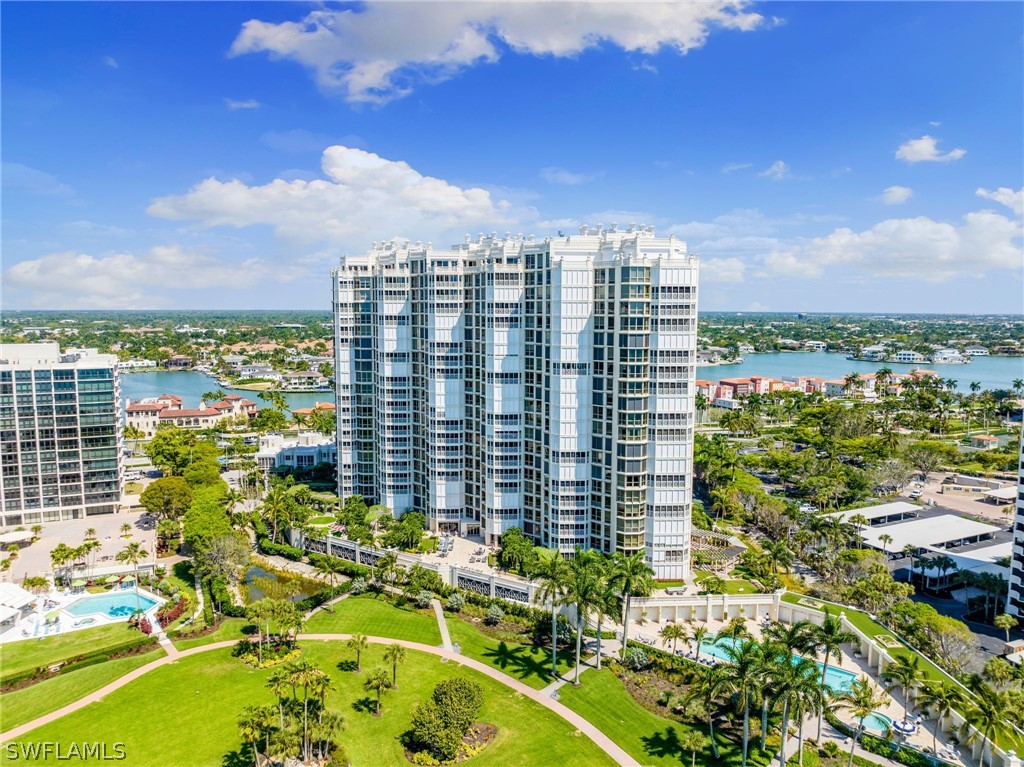According to Statista, the value of the multifamily loan market is $487 billion. The FHA multifamily programs constitute around 9.2% of this mortgage market. These programs assist borrowers in buying or refinancing multifamily properties for investment purposes.
Whether you’re a homebuyer or investor, understanding the features of FHA multifamily loans can help you make an informed decision.
📌kEY FEATURES OF FHA MULTIFAMILY LOANS
- FHA multifamily loans finance properties with five or more residential units.
- FHA multifamily loans offer several programs. These include new construction loans, refinance loans, and rehabilitation loans for property repairs.
- This program typically offers higher loan-to-value ratios compared to conventional loans. Borrowers can finance a larger portion of the property’s purchase value.
- Generally, FHA multifamily loans have longer loan terms compared to conventional loans, ranging 35 from 40 years. Longer terms result in lower monthly payments and improved cash flow for borrowers.
Find Mortgage Lenders Near You



Find Mortgage Lenders Near You




Find Mortgage Lenders Near You
View 1+ Lenders in the US
Find Mortgage Lenders Near You
View 0 Homes For Sale in the US
Where do you want to live?
How Does an FHA Multifamily Loan Work?
The FHA multi-family loan works in the following way:
- Eligibility: You must use the property as your primary residence, occupy one of the units, and satisfy the FHA’s borrower qualifications.
- Loan Programs: The FHA offers various loan programs for owner-occupants of multifamily properties. These programs include new purchase loans, refinance, and rehabilitation loans for repairs.
- Down Payment: These loans require a minimum down payment of 3.5% of the purchase price. This low down payment requirement is one of the key advantages of FHA loans.
- Mortgage Insurance: FHA multifamily loans require mortgage insurance, which protects the lender in case of borrower default. This insurance is typically paid as an upfront premium at the time of closing.
- Loan Terms: FHA multifamily loans for owner-occupants typically have longer loan terms ranging from 15 to 30 years. This provides borrowers with extended repayment periods and lower monthly payments.
- Property Requirements: The property must be in good condition and meet the FHA’s minimum property standards. Also, the number of units in the property must comply with FHA guidelines.
It’s important to note that, while you are required to occupy one of the units as your primary residence, you can rent out the remaining units.
What Are the FHA’s Loan Requirements?
The FHA has specific loan requirements that borrowers must meet to qualify for an FHA-insured loan:
1. Borrower’s Eligibility
- U.S. citizenship or lawful residency status.
- Legal age (18 years or older).
- Social Security Number (or any eligible alternative identification).
2. Credit Score
- Most lenders have their minimum credit score criteria, whereas FHA doesn’t. A credit score of 580 or higher generally qualifies for the lowest down payment requirement of 3.5%.
- Borrowers with credit scores below 580 may still be eligible but require a higher down payment of 10%.
3. Down Payment
- The minimum down payment for an FHA loan is 3.5% of the purchase price. This can be sourced from the borrower’s funds or eligible sources, such as gifts from family members.
- A higher down payment may be required for borrowers with lower credit scores.
4. Debt-to-Income Ratio (DTI)
- FHA loans typically require a maximum front-end DTI ratio of 31%.
- Borrowers with higher credit scores may qualify for higher DTI ratios.
5. Income and Employment
- At least two years of continuous employment are required to qualify for an FHA loan.
- Income from various sources, such as full-time employment, self-employment, rental income, and retirement benefits, can be considered.
6. Property Criteria
- The property must be appraised by an FHA-approved appraiser to ensure it meets minimum property standards.
- The property should be used as the borrower’s primary residence. FHA loans are not available for investment properties or vacation homes.
Moreover, the FHA has fixed guidelines, but, individual lenders may have additional requirements that borrowers must meet.
Pros and Cons of FHA Multifamily Loans
Here are the pros and cons of FHA multifamily loans:
Pros
- Low Down Payment: FHA multifamily loans have a low down payment requirement of 3.5% for qualifying borrowers. This can make it easier for investors to acquire multifamily properties with less upfront capital.
- Favorable Interest Rates: FHA-insured loans generally offer competitive interest rates compared to other loan options. This can help borrowers secure more affordable financing for their multifamily properties.
- Longer Loan Terms: FHA multifamily loans have longer loan terms, ranging from 35 to 40 years. Longer terms result in lower monthly payments, enhancing the borrower’s cash flow.
- Streamlined Refinancing: FHA multifamily loans offer a streamlined refinancing option that simplifies the process for borrowers. This option is for borrowers who seek to refinance their existing FHA-insured loans.
- Mortgage Insurance: FHA multifamily loans include mortgage insurance, which protects the lender against the borrower’s default. This insurance allows lenders to offer favorable terms and lower down payments to borrowers.
Cons
- Property Restrictions: FHA multifamily loans have stringent property requirements and occupancy guidelines.
- Mortgage Insurance Premiums: FHA multifamily loans require borrowers to pay an upfront mortgage protection insurance (MPI). This premium is paid at closing. Also, MPI is to be paid monthly for 11 years.
- Borrower Qualifications: FHA multifamily loans have borrower qualification criteria, like experience in managing multifamily properties. Also, these qualifications are more stringent than conventional loan options.
- Processing Time: FHA multifamily loans have longer processing times compared to conventional loans. Furthermore, the FHA approval process and additional documentation requirements can lead to extended loan approval and funding timelines.
- Loan Limits: FHA multifamily loans are subject to loan limits set by the FHA, which vary by location. Also, these limits may restrict the maximum loan amount available for certain high-cost markets.
Other Ways of Financing a Multifamily Property
There are several ways to finance a multifamily property besides FHA loans, which are as follows:
- Conventional Loans: Conventional loans are not insured or guaranteed by a government agency. They have more stringent qualification criteria.
- Commercial Loans: Commercial loans are specifically designed for commercial real estate, including multifamily properties. Moreover, they may require larger down payments and have shorter loan terms compared to residential loans.
- Seller Financing: In some cases, the seller of the multifamily property may be willing to provide financing to the buyer. The terms and conditions of seller financing are negotiated between the buyer and seller.
- Private Lenders: Private lenders provide hard money loans based on the property’s value rather than the borrower’s creditworthiness. They also offer flexible qualification criteria and quicker funding.
Moreover, you should consider factors such as interest rates, loan terms, down payment requirements, closing costs, and repayment options when exploring these financing options.
Find Homes for Sale Under Your Specific Budget
Bottom Line
Buying a multifamily property is an advantageous option. You can rent the vacant units of the property and make a handsome income from it.
FHA multifamily mortgage programs help borrowers kick-start this investment journey. Consult a real estate professional to select the most suitable FHA loan program for you.
Find Your New Home With Houzeo
With thousands of property listings, Houzeo.com is one of the biggest property listing sites in the US. Find condos, townhouses, co-ops, and other types of homes for sale on Houzeo.
Find Multifamily Homes For Sale



Find Multifamily Homes For Sale




Find Multifamily Homes For Sale
View + Inspectors in the US
Find Multifamily Homes For Sale
View 17,000,694 Homes For Sale in the US
Where do you want to live?
» Need More Clarity? Read these exclusive Houzeo reviews and learn why the platform is the best in America’s competitive housing market.
Frequently Asked Questions
Does FHA do multifamily loans?
Yes, FHA deals in purchase of both single-family and multifamily loans.
What are FHA loan multifamily requirements?
To qualify for the FHA multifamily loan, you have to meet certain requirements. Your credit score, down payment, and DTI ratio determines whether you are eligible for the FHA loan.
Does FHA loans have lower interest rates than conventional loans?
No, in both types of loans, the lender sets the interest rates based on your creditworthiness.
Can i flip my FHA multifamily home
Yes, you can flip your home, however, you must abide by the FHA flipping guidelines to do so













.webp)
